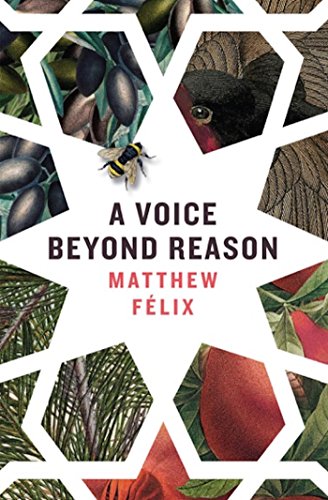

By
Matthew Felix
Reviewed by
Henry
Reed, Ph.D.
I don’t read much fiction. It
seems like I have enough to do with books in my line of work without also
getting into them just “for fun.” I realize that one of the benefits of reading
fiction is it increases our ability to empathize with folks not like us. That’s
a positive, for sure.
I recently was given a fiction
book,
A
Voice Beyond Reason, with the hopes that I’d review it. It proved to be an
interesting experience and taught me a lesson about fiction. The story takes
place in Southern Spain, during modern times. I enjoyed the scattered
observations about life in that part of Spain. There were several references to
the Moorish tradition, which was but a shadow of history by that time. When our
hero discovers the Alhambra, I do wish there was more time spent exploring that
special place. I did enjoy the insertion of a few comments in Spanish, here and
there.
To my surprise, I also discovered
that our hero,Pablo, was faced with something that I myself had gone through in
the past couple of years. In a
tragic accident and through mis-communications, Pablo lost everything that he
based his identity and his life upon. He tries to refind himself in a world he
no longer knows. He meets up with an elderly gentleman, Victor, who serves as
his spiritual mentor. The essential core of the story involves their
conversations, much like the conversations between Carlos Castaneda and Don
Juan. The content of these dialogues focus on what it is like for Pablo to
listen to his intuition.
It was in watching Pablo struggle
to find his way with no bearings until he begins to notice certain feelings that
I began to identify with him. I realized his story was my story. I experienced
the confusion he did. I learned some things similar to what Victor tells Pablo,
especially about how true intuition is different than either our hopes or fears.
I identified with his predicament: he has to be willing to let go of his past in
order to embrace his future. I smiled with recognition as Pablo began to find
ways to trust his intuition and act upon it. My own sense of things was
confirmed as Pable discovered that his intuition does not always seem to pan
out, but it only seems that way, because what it actually does is to get you
moving in the right direction, with hints and warnings to keep the steering on
the right path.
I found my time reading the book
was rewarding. I thought to myself, “How can I compare non-fiction with fiction
in terms of what kind of growth do I get out of it?” I find the non-fiction
books connect with me at the level of intuition-thinking, whereas the fiction
book connects with me via intuition and feeling. In the non-fiction realm, I
analyze myself as a separate being from me. In the fictional realm, I find I
empathize with the hero as if he were me, and experience the lessons
accordingly.
If you feel your life is changing
more than you want it to, and you realize you need to change along with it,
you’d probably gain a lot of confidence in your innate ability to embrace change
as a path to growth.